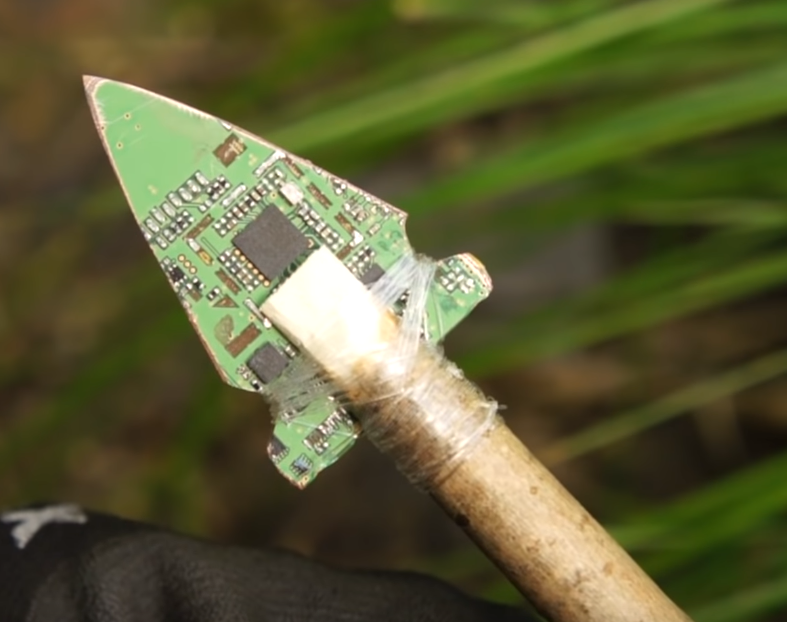With all this migration i’ve been inspired to start self hosting some services.
I am looking for a mini pc to ideally run linux and host a media server with radarr and sonarr, pihole and some other stuff as i start getting more into self hosting.
Any recommendations / experiences that you can give? Or some general guidelines on what i should look for or things to avoid.
Thank you!!
sounds like you need newegg.com. I build a new PC every few years and they have most things you want. tom’s hardware usually has reviews and lists. couple sites I can’t remember help with parts compatibility. use the search https://www.newegg.com/
Newegg is unfortunately not as good a source as in years past. I have two good friends who got burned by them with very suspicious defective product return problems. When it happened I read about many more similar complaints.
Another vote for Asrock Deskmini. I’ve had an A300 going for a while now. It started off just doing a few things on Docker, it’s now been repurposed as a Proxmox host. The nvme plus 2x 2.5” sata is very useful for storage options, and you can put some reasonable desktop CPUs in - subject to cooling, of which you can get a very low profile replacement if you need to. As there’s no video on the motherboard and no space to fit a PCIe (let alone the video card) you are restricted to CPUs with onboard video, which I think is more of a restraint for the AMD version than the intel, but even so there are enough options in the AMD lineup if you need firepower.
The Noctua NH-L9a-AM4 is an excellent cooling solution that juuuust fits in the case. One thing to just clarify is that the deskmini requires a GPU - it can’t be run headless at all.
It really is excellent. It’s my home server and it hasn’t broken a sweat running dozens of services. Jellyfin can use the GPU for video transcoding on the fly too, so that helps make that not a complete waste.
If you just want something small and fun to play with Linux and containers try looking for used Chromeboxes. Just bear in mind that going down the *arr app rabbit hole usually means building something with more storage.
A few years old prebuilt for the office can work well, I have an HP 290 and HP S01 that work great as servers.
That’s what I did as well. Got one with a sixth gen i7 for $100 on eBay a few years ago. It’s been chugging along nicely.
Same here. I have everything running on an ex-lease HP EliteDesk. Small footprint, and quite upgradable. Think I paid about £150 for it and it’s been running quite happily for a couple of years. Runs everything I can throw at it.
I don’t know why people buy RPIs anymore, unless the tiny form-factor is a must have.
Intel NUCs are a great mini PC option (while a little expensive)
I bought a Morefine N100 recently, it’s a great device. Support 1 NVMe and 1 SSD 2.5, you can use both combined in RAID and even backup options in the cloud or on an external disk through the USB3.0 ports.
Quicksync for Plex/tdarr works great on the latest version of Debian Bookworm.
I use a headless Raspberry Pi 4 connected via USB to an external 2TB SSD and host
- Nextcloud
- Pihole w/Unbound
- Transmission
- Jellyfin
- Webmin
- Apache webserver with a personal static webpage
- Soon to host my own Lemmy instance
A colleague at work said he was running a Raspberry Pi but in the end had to move to a more powerful system because he needed more power. AFAIK he’s use case is lighter than what i plan so i thought it wasn’t a viable solution. What you describe sounds very nice, especially because of the price of the Pi.
Would love to hear more people’s experiences with this setup.
While PI prices are starting to come back down to earth, they are still heavily inflated if you want enough RAM. then you usually want to add the cost of an enclosure and SD card, power supply, HDMI adaptor if you need a screen etc.etc.
I got an intel N95 powered miniPC with 8gb ram and 128gb ssd for less than the current going rate of a PI4 8GB, so sometimes they aren’t the best option. great little chip
I’ll be replacing a pi4 and 2 pi3’s with that little guy.
I use a few used Dell Optiplex 7050 Micros, they’re great for the price (and have a small footprint too!)
Edit: for storage I have a HP MicroServer Gen. 10 plus
I went with a used Optiplex for my Plex server. I rarely transcode anything so I didn’t need much power
Depending on where you’re at in the IT space it’s entirely possible to start with an old desktop system and build from there. If you get into things heavily though memory space can quickly become a bottleneck. I just recently upgraded a couple parts of mine so the principal host is a Dell R820 which has the potential for 4 multi-core processors and around 1.5TB of memory, should cover everything for a while outside of the storage and security side of things. Going to a place like the site above is a fine way to get some low cost hosting gear custom built to your specs. I think with reusing the drives I had already it was under $800 all told and has plenty of room to grow.
Asrock Deskmini x300. Great little home server :)
I’ve had mostly good luck with lower end NUCs. I say mostly because of 3, one died a hard and abrupt death after 2 years; but the other 2 have been fine going on 2 years now. The only problem with NUCs in general is they tend to be over priced. If you can find them on sale they are totally worth it. As others have pointed out, you should have a plan for more storage. Personally I’ve found a good usb hub and some external disks work great for what I do. As to why I like them: 1) form factor, low profile cube, 2) they happily run headless, 3) hardware seems to be of decent quality (ignoring my i3 box that never turned back on after a reboot), 4) most models have enough I/O to fit your needs.
You can also use hosts like linode with $100 credits to try out self hosting with no investment at all. If you need a coupon code, let me know.
Maybe stating the obvious, but don’t skip over older laptops if you can get your hands on them. The CPUs are optimised to be power efficient. They also come with a built in UPS that even in bad cases will still be good enough for 15 minutes or so, which is good enough for 99% of the power cuts. Only down-side: lack of SATA ports, but that is more or less the same with mini-PCs.
I’d be a bit wary of using a laptop. I use one (Dell XPS 13 9310) for a development DB server, and despite all the Windows power saving features being turned off, it goes to sleep after a few hours unless I keep an RDP connection open. The computer is set never to sleep and the wifi adapter’s power savings are disabled. Maybe I’m missing something, but I’ve hunted all over and not found a way to keep it on.
Obviously you would install Linux on it. Absolutely no difference to a regular server then.
Yeah that would no doubt help.
I’d also be a little concerned about laptops not being designed to be on 24/7. The fans and the heat dissipation wouldn’t be as good as in a dedicated box, so components might not last as long.
You can usually buy replacement fans pretty cheap. I run an old framework laptop motherboard as my server and if the fan ever craps out I can get a new one for 40 bucks.
I agree that other components might not last that long due to heat but if you already have the equipment sitting around and its not a production environment why not use the hardware until it fails?
My plan is whenever I upgrade the motherboard in my laptop I will add the old one to my proxmox cluster. Double upgrade! Faster laptop and more compute for the homelab :)
Have someone 3d print a custom encloser for you that can also house an independent cooling system. It could even be made temperature sensitive if you choose.
deleted by creator
deleted by creator
You can usually buy replacement fans pretty cheap. I run an old framework laptop motherboard as my server and if the fan ever craps out I can get a new one for 40 bucks.
I agree that other components might not last that long due to heat but if you already have the equipment sitting around and its not a production environment why not use the hardware until it fails?
My plan is whenever I upgrade the motherboard in my laptop I will add the old one to my proxmox cluster. Double upgrade! Faster laptop and more compute for the homelab :)
The Framework laptop is interesting with its removable motherboard that you can put in a separate case when you upgrade the laptop.
https://www.theverge.com/2023/3/23/23652939/framework-cooler-master-sff-pc-case
I just built a Server using J5040 board. With 16gb ram (yes it works) a 500gb m.2 as system , 2x4tb ironwolf as ZFS mirror pool, 350 W power supply all in the node 304 fractal case for 550 euro.
Runs proxmox as hypervisor for VM or Container. As example LXC container for motioneye and syncthing
I got myself a used/refurbished Lenovo ThinkCentre M910q Tiny, which works pretty well. Put in more ram and bigger storage and it is pretty beefy now as well as silent.
Sam here, its just M710q I believe, got ir second hand. It came with 16GB RAM and 512GB nve and 1TB SSD, added an external 8TB drive for storage, and ir works fine.














